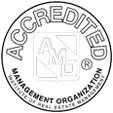How Interest Rates And The Economy Impact Commercial Real Estate

Every year, the Counselors of Real Estate (CRE) releases a report on the top factors influencing real estate today – and how those specific issues will affect marketplace decisions over the next decade. The group recently released their 2018-2019 top 10 issues and, in a break with tradition, has separated the list into two segments to differentiate between current and longer-term determinants on real estate property.
The CRE’s list long-term indicators are more of a peripheral concept where investors in both the home and business property sectors will have to play a game of “wait and see” to truly pinpoint how (and even if) things like water shortages, the growth of smart buildings, and global warming will sway U.S. real estate markets. However, the group’s current list of influencers specifically shines a light on potential turmoil in the here and now. Topping the CRE list of factors that may impact and, possibly impede, the residential and commercial real estate market? Interest rates and the economy.
Interest Rates And The Economy: Why Now Is The Time To Watch
Interest rates and the economy have always had a direct, irrefutable link to residential and commercial real estate. It’s a linear concept – a shrinking economy means investors in every vertical have less expendable income and may refrain from making major purchases like a home or business property. However, the Counselors of Real Estate’s prediction about financial markets directly impacting the property market now is a timely forecast based on one vital factor at play, particularly in the commercial sector of the vertical: rising interest rates.
Will Higher Interest Rates Affect Commercial Real Estate Investment?
The Federal Reserve first made deep, long-term cuts to the interest rates as a direct response to the housing bubble burst of 2008. In recent years, the exceptionally low rate has been slowly and steadily climbing – with no anticipated end in sight. The Fed recently voted unanimously to increase short-term interest rates by a quarter point. Additionally, recent statistics reveal that 7 out of 15 Fed officials predict at least four additional rate increases this year. This is a 25% increase over the 3 interest rate hikes that were initially forecast in December of 2017.
Shifts In Commercial Real Estate: Potential Impact On Landlords And Tenants Alike
What does this mean for commercial property investors warily wondering if a rising interest rate is cause for concern regarding investment performance? While slight rate fluctuations may not have a direct impact on commercial real estate, over time, the cumulative effect of perpetual increasing rates can (and often does) create marketplace turbulence, influencing both the overall economy as well as property values. As the cost of borrowing increases, investors and tenants will have to remain agile to absorb shifting trends in the commercial real estate marketplace, especially with certain property types that are historically more susceptible to rate flux.
Owners of equity-based properties may find themselves in the best financial position as we navigate through fluctuating rates and economic temperatures. Regardless of Fed hikes, the value of equity-based properties generally increases along with the overall economy. As a result, owners of these properties can often wait until the interest rate storm subsides before making any major investment decisions.
Unfortunately, owners of properties with fixed income characteristics may not be so lucky, as these properties typically incur greater risk with market changes. For example, tenants with net leases pay a fixed monthly rent. As interest rates rise, landlords who have had to refinance or borrow may suddenly find the value of their monthly rent checks decreasing as interest rates continue to rise.
Eventually, these changes trickle down to tenants as well. Prospective renters looking for a new location to launch or expand their businesses may suddenly find themselves the victims of rent surges and unable to secure a location at prior monthly rates. The inability to find viable, affordable corporate space not only directly impacts the renter’s organization, but can also have a rippling effect on general employment rates as companies, unsure of when the market will level, maintain existing operations (or downsize) instead of growing and hiring.
Contact Southpace Properties Today
Not sure if now is the right time to invest in commercial real estate? Contact Southpace Properties. Our experienced realtors can answer your questions and help you make an informed final decision.







